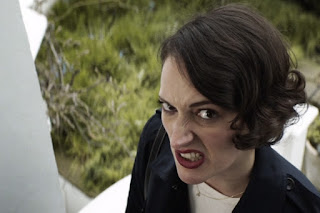It was a nice gathering of the blue-eyed soul tribe at the Union Chapel, a few more pairs of loafers than you see on an average night out, and that suburban London twang that you don't hear so much of any more. A room full of Robert Elms-es is basically what it was, lots of people dressed like they were going out to Dingwalls in 1987 – and everyone I spoke to was very friendly and relaxed.
The band came on and launched straight into All Because of You, and, sporting a spectacular blazer and sunglasses, on came Mr Leroy Hutson, as the MC kept referring to him. The soundman took a while to get a hold of the levels, and the band took a while to find their cues. "Can you believe we only rehearsed for the first time yesterday?" said Mr Leroy Hutson at one point, to which the only answer was: "Yep." Still, he didn't mess about, giving us three of his best tunes straight off the bat, before leaving the BVs girl to sing a couple. Then the band did a funk workout, at which point the suspicion began to arise that we were going to hear more of a London session band than we had necessarily signed up for. A decent band, obviously, but, you know, not £35-a-ticket decent. But back on stage Mr Leroy Hutson came, twiddling from time to time at a Korg keyboard at the front to no obvious effect, to do a few more classics.
The sound improved, and you got to hear a bit more of his vocal, which sounded in pretty good shape. The band did another funk workout, this one more impressive as they found their feet. Things cut a bit looser after the encore, when the soul massive clambered out of the chapel pews to dance happily to the finale, after which Mr Leroy Hutson cut loose himself, getting off the stage with indecent haste, the clock barely hitting the hour mark. It's been a while since I've seen someone do the absolute bare minimum at a show, and it left me a bit cold, I'll be honest. I know he's 71, and has an earned a few easy paydays, but it's always nice when they give you a little extra. Especially as the sound had been sorted, and the crowd had warmed up and was right for it. I'd have been content just to hear All Because of You again, but it weren't to be.
Truth is, we're lucky he's still alive, cos so many of them aren't – this the day after another soul legend, Leon Ware, died. And, at 71, Mr Leroy Hutson can still hold a tune, and what great tunes they are.
Truth is, we're lucky he's still alive, cos so many of them aren't – this the day after another soul legend, Leon Ware, died. And, at 71, Mr Leroy Hutson can still hold a tune, and what great tunes they are.
